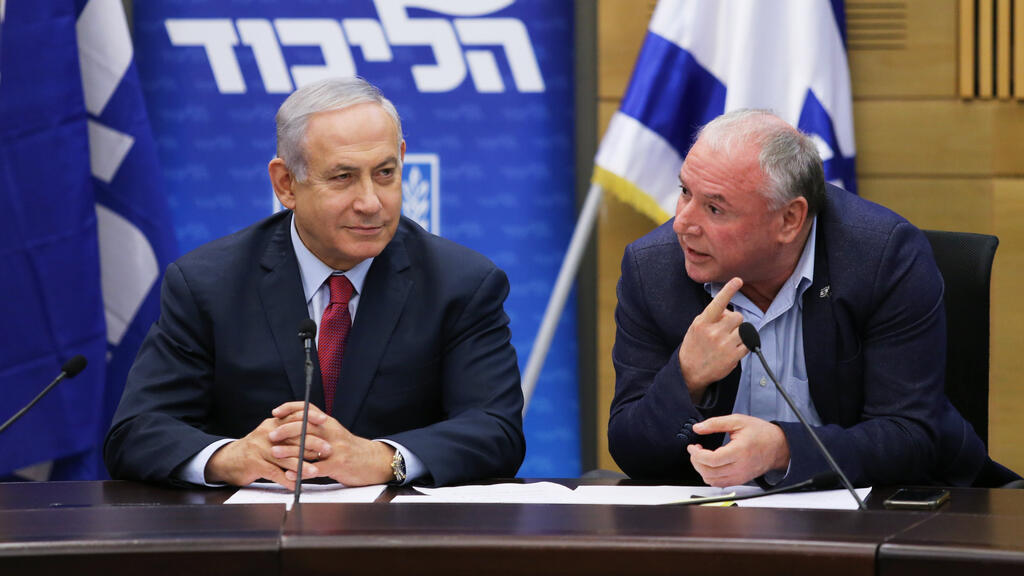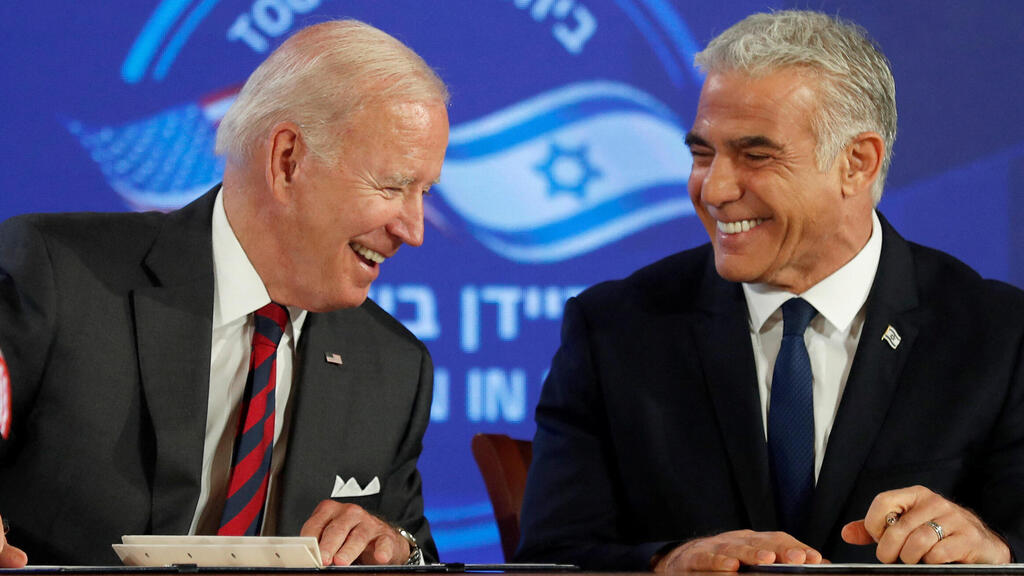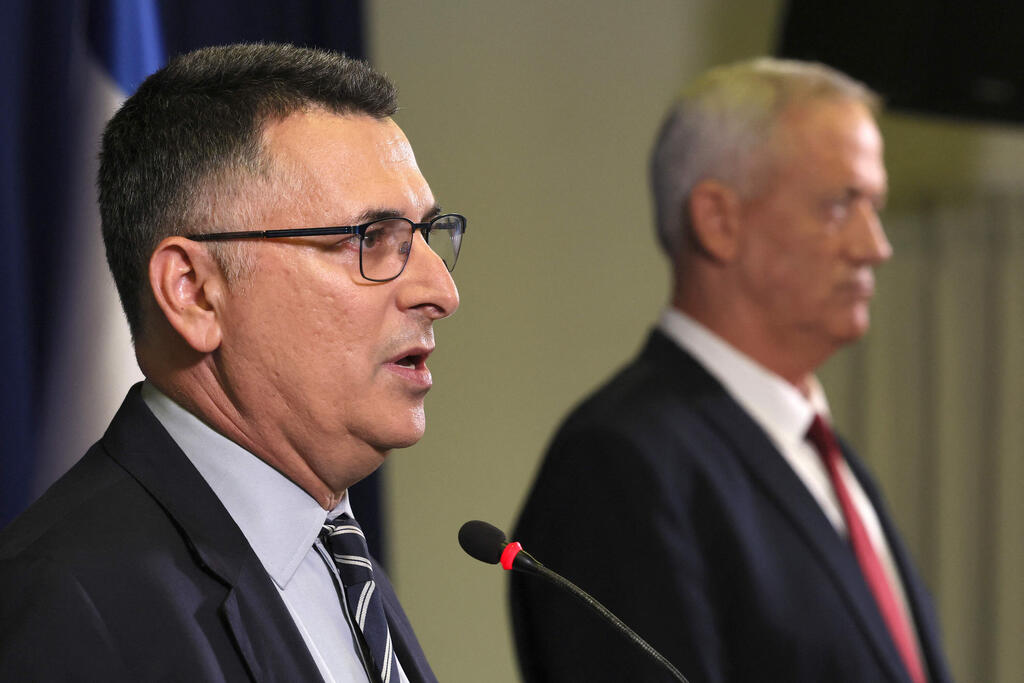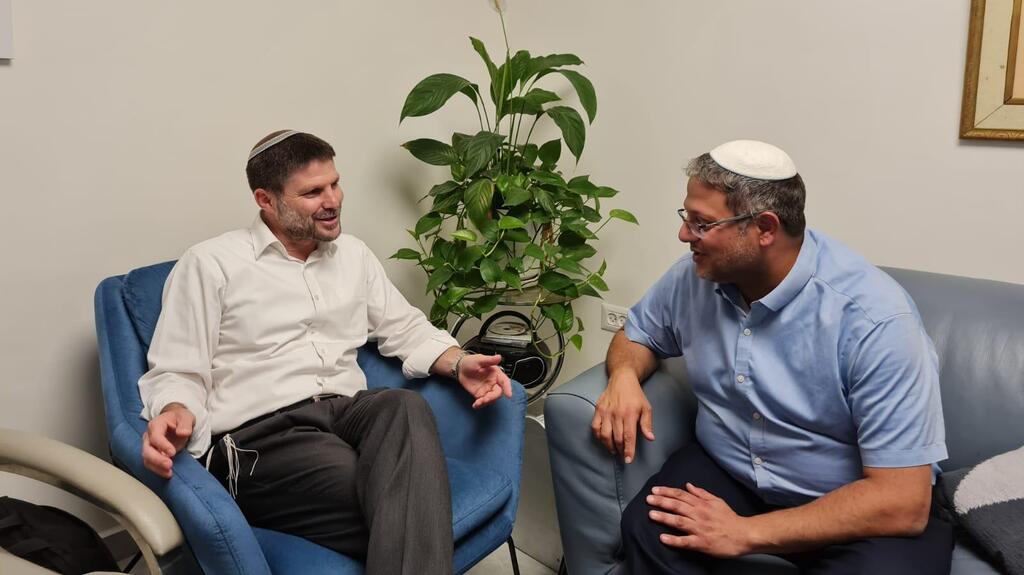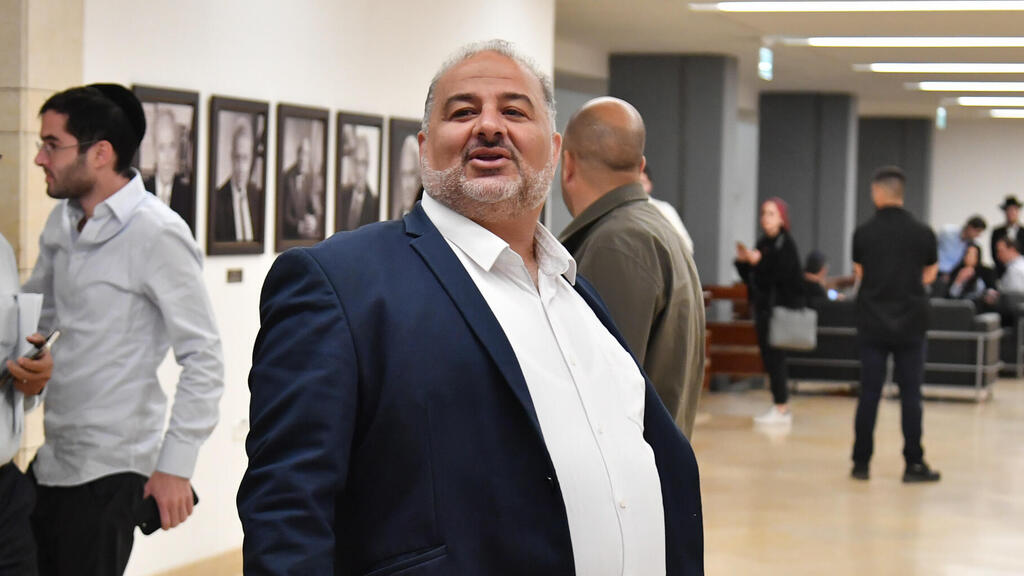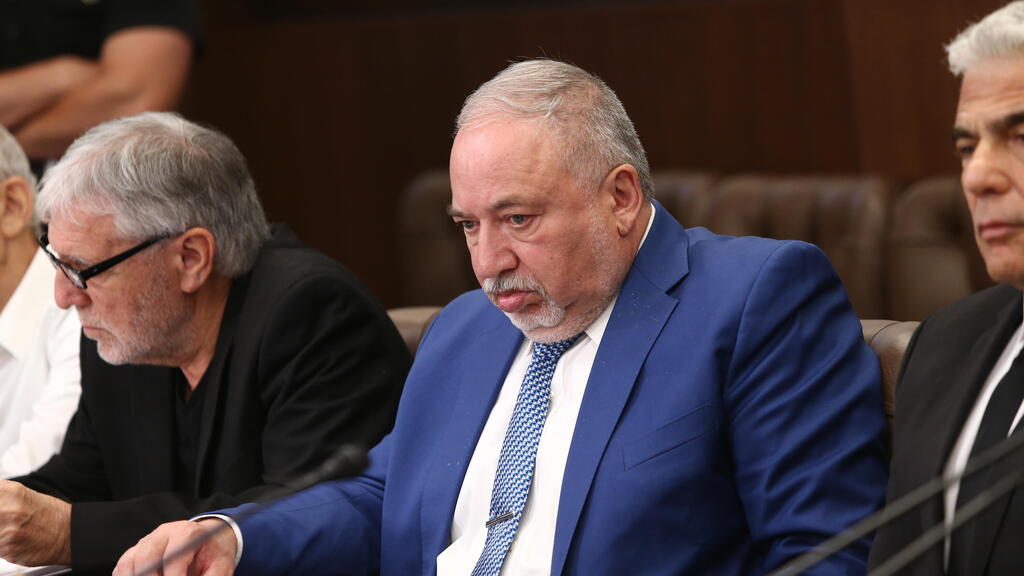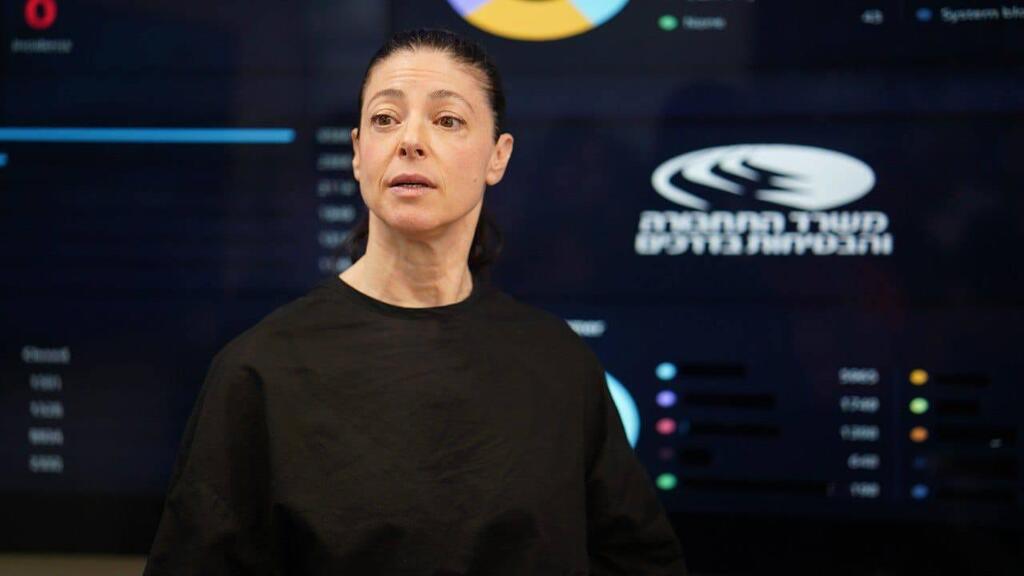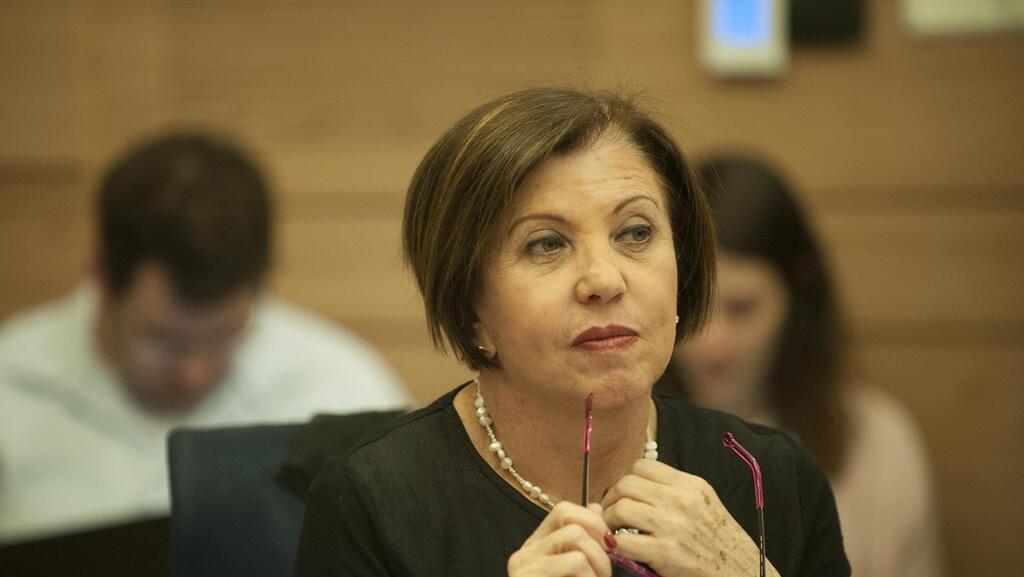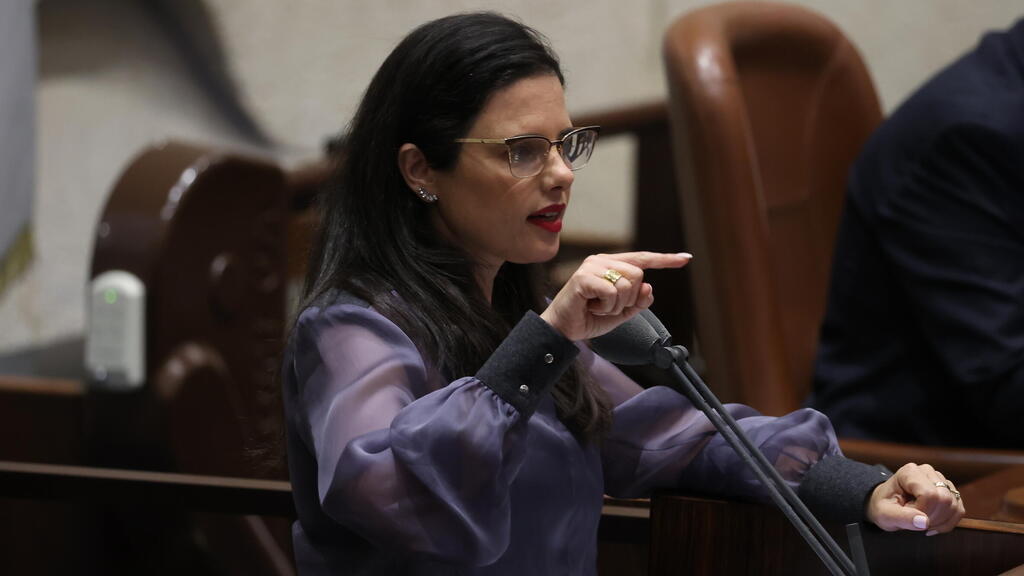As elections near, Israel's political parties are busy solidifying their agendas and forming alliances to increase their electability ahead of the November 1 national ballot, the country's fifth in three years.
On the right, Likud leader and former Prime Minister Benjamin Netanyahu wishes to grow his parliamentary block, Prime Minister Yair Lapid seeks to appease the ultra-Orthodox - whom he hopes will be willing to align with him - and Defense Minister Benny Gantz could become the ultimate unifier as he positions himself as the moderate amenable to both sides.
13 View gallery
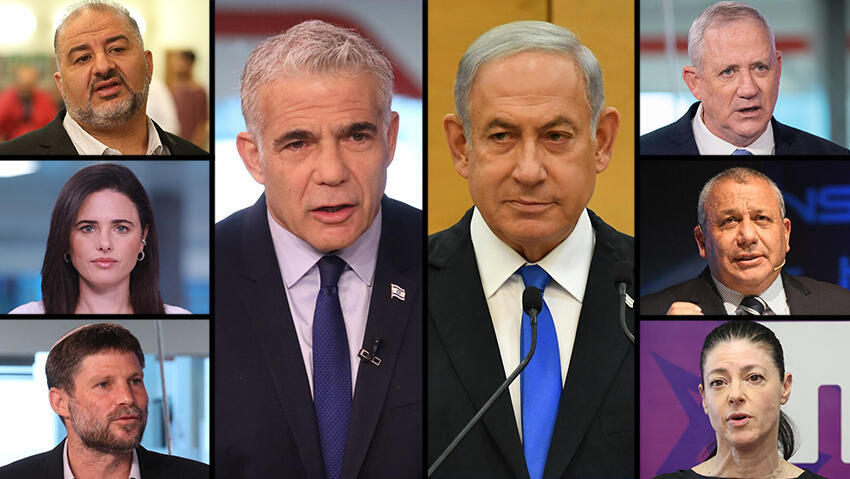

Israeli political party chiefs
(Photo: Hadar Yoavian, Eli Mandelbaum, Amit Shabi, Elad Gershgorn, Dana Kopel, Yair Sagi, Shaul Golan)
Likud
Benjamin Netanyahu's challenge is aiming for a 61-seat majority in the next Knesset, which has alluded him since his former ally Avigdor Liberman abandoned the Likud-led coalition government in 2018.
Party leaders have identified their mission to succeed in a greater turnout of voters who were absent from the polls in the previous election rounds. They plan to target Likud's geographic strongholds as well as convince swing voters to cast votes for their party.
To do so, the party must tone down the rhetoric of its more outspoken members, some of whom have threatened Supreme Court judges and personally attacked critics of Netanyahu, which - despite their often-outrageous statements - has won them favors with the leader, increasing their chances in the primary race.
Netanyahu is hoping for a "calm" election campaign, avoiding public events which may cause him more embarrassment, such as the recent incident where party members were urged to purchase a medallion with his image in proof of their loyalty to him.
Yesh Atid
Polls show Prime Minister Yair Lapid's party is growing in support. It is the largest political faction in the center-left camp and Lapid is catching up to Netanyahu in surveys that ask who would be most suitable to lead the country.
But the party must increase its size further for Lapid to compete against Netanyahu for the premiership.
A tighter race between Yesh Atid and Likud would increase the chances that President Issac Herzog would task the prime minister with forming the next government. Lapid will have to show that he can assemble a coalition of 61 MKs despite vowing not to invite the predominately Arab Joint List and the ultra-Orthodox parties to be part of his government.
Blue & White and New Hope
After uniting to run jointly in November 1 ballot, Blue & White chief Gantz and New Hope Chair Gideon Saar say they will be able to form a broad and stable coalition bolstered by moderates on the right.
Their challenge is to prevent their alliance from breaking down before the elections.
From the Netanyahu camp, they will be accused of being left-wing, having been part of the coalition that included the Islamist Ra'am party. From the other side, they will be accused of being too far to the Right, with Saar and his allies promoting settlements expansion.
In order to present a centrist alternative, they will have to promote the notion that they alone would be able to form a coalition without extremists from either side of the political spectrum, and end the polarization that is plaguing the country.
Religious Zionism
Bezalel Smotrich hopes to solidify his alliance with far-right MK Itamar Ben-Gvir and his Otzma Yehudit (Jewish Power) party, and attract voters from the more extreme corners of Likud, the ultra-Orthodox parties and the settlement movement.
The alliance is still up in the air, with factions bickering over whose members will top the unified party list. Ben-Gvir, cognizant of his growing public exposure, is demanding a 50% share in the top ten.
Smotrich is also aiming for voters who supported Naftali Bennett's Yamina in the past, but were left upset by his decision to head a coalition with left-wing parties. His mission is to gather at least two seats from that pool of voters.
Netanyahu, meanwhile, needs Smotrich and Ben-Gvir to bolster his political camp but on the other, prefers for them to remain too weak to force his hand in policy decisions.
Shas
After leader Aryeh Deri was forced to resign from the Knesset earlier this year, having plead guilty to tax evasions, his party hopes he will return to lead and grow the ultra-Orthodox party to 10 seats - a feat not accomplished since 2013 – by reaching the scores of thousands of voters who did not turn up for the ballot in previous rounds.
13 View gallery
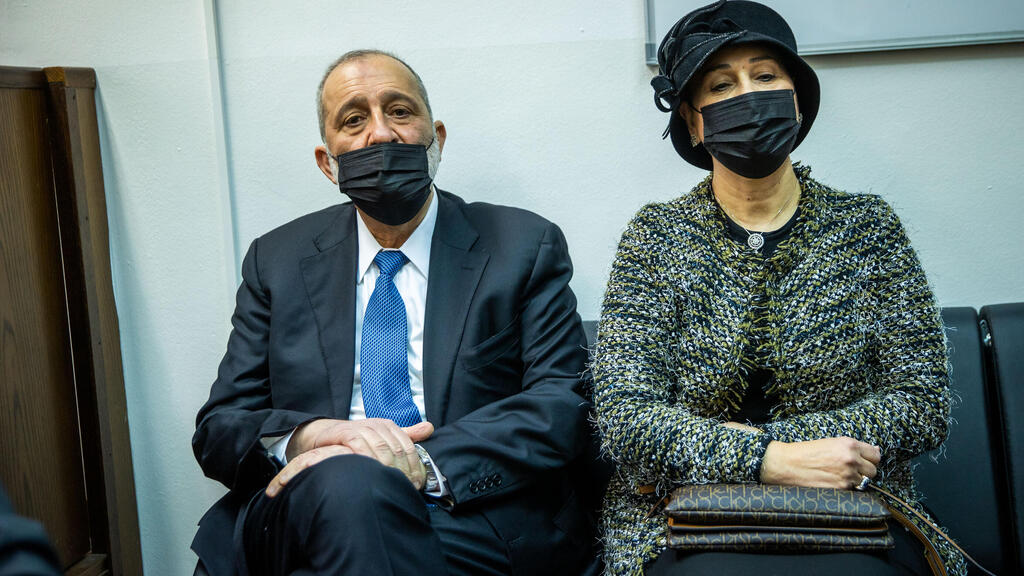

Deri and wife in a Jerusalem court after he pled guilty to tax evasions
(Photo: Oren Ben Hakoon)
The party hopes voters who are tired of repeated election cycles would return and support the efforts after the right-wing Netanyahu-led coalition was ousted from power last year.
But, potential voters have always been going back and forth between support of the ultra-Orthodox party and secular Likud, and may just decide to cast their vote for the latter, which is the larger of the two.
Deri, for his part, has mobilized his party apparatus to go after every potential voter.
United Torah Judaism
The other ultra-Orthodox party is also attempting to find voters who neglected to cast their ballots in the last elections.
13 View gallery
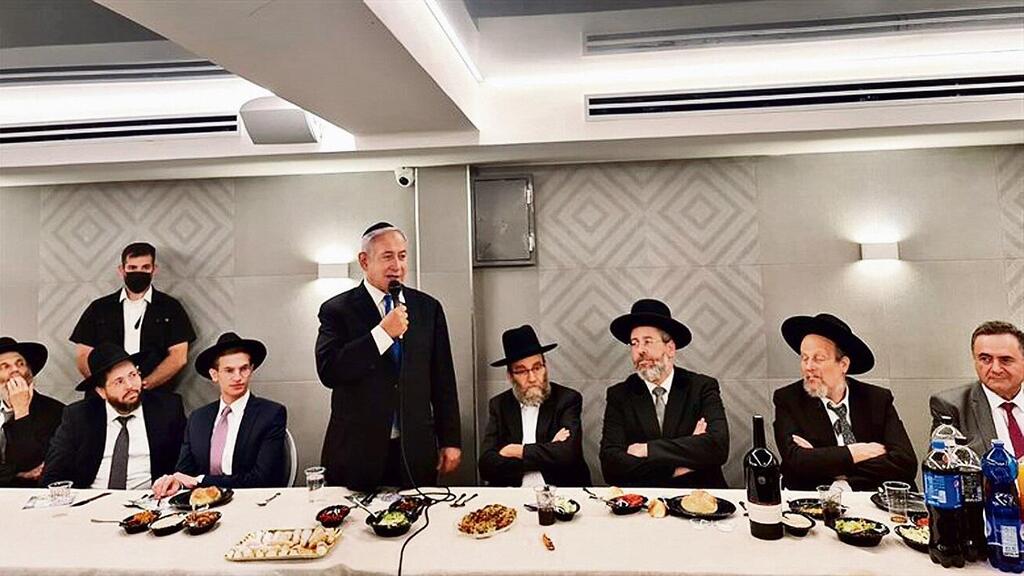

Moshe Gafni with Benjamin Netanyahu as religious and political leaders attend a family wedding
(Photo: Courtesy)
But its leaders, Moshe Gafni and Yitzchak Goldknopf, will have not only to bring an estimated 25,000 more people to polling stations, they will have to prevent masses of their electorate from defecting to alternative parties, especially to Ben-Gvir and the Religious Zionism.
Joint List
This alliance of factions must convince the Arab Israeli public to come out and vote on election day despite their indifference or disappointment at their elected representatives.
Their leaders say they will back Gantz as the future prime minister and have rejected claims by Lapid that they are extremists in their views on the State of Israel.
Ra'am
Mansour Abbas will be the focus of the Islamist party's campaign and his image has already appeared on posters in Arab communities.
With the major part of their support found among Bedouins in the Negev, Abbas will have to convince many to take part in the political process.
He will also have to refrain from making the same mistakes in appointing members who may oppose his policies, as some had done in the Bennett coalition.
In an effort to appeal to the general voting public in the Arab sector, Abbas has already announced he will add to his party list a Druze and a Christian candidate.
Yisrael Beytenu
Finance minister and leader of the party, Avigdor Liberman, is facing a decline in polling numbers. His challenge is to repeat the seven seat achievements of last year in order to remain a relevant player in the political field, and see the ultra-Orthodox parties remain outside the next government.
After vehemently rejecting a political partnership with both Netanyahu and the ultra-Orthodox factions, he will have to convince parties in the center and the Left that without the Haredi parties a viable coalition is still possible.
He must also attempt to collect those Russian-speaking immigrant votes, which have in recent years migrated to Likud and others.
Labor
After winning her party's leadership for a second time, Merav Michaeli who surprised observers last year and won seven Knesset seats, is now facing polls showing she was losing support.
Her challenge is to prevent votes from drifting to Lapid who is attracting voters from smaller left-wing parties.
Labor must also set itself apart from Meretz, which appeals to many of the same constituents, after Michaeli took the strategic decision not to unite the two.
Meretz
After party leader Nitzan Horowitz announced he would not head the faction in the coming elections, party officials convinced former leader Zahava Galon to come out of her retirement and lead the party across the parliamentary threshold.
Her primary challenge is former Deputy Chief of Staff Yair Golan, who does not carry favor with some of the members because of his military past.
Polling shows Meretz may not win the minimum four seats needed to enter the parliament, while their efforts to unite with Labor have so far been rejected.
Meretz's challenge is to attract voters who in the past elections cast their ballots for other left-wing parties.
Yamina
After Bennett announced he would be taking a break from politics, his close ally and long-time partner Ayelet Shaked has taken lead of the battered party.
Yamina members defected during Bennett short tenure as primer and Shaked must present a new list of candidates and win sufficient votes to enter parliament.
If successful, she could become kingmaker after she stated clearly that she does not oppose a Netanyahu-led coalition.
Likud, where Shaked has been slammed repeatedly for her role in the Bennett government, will likely attack her forcefully throughout the campaign and strive to see her fail, so that her right-wing supporters' votes will be cast for them.


